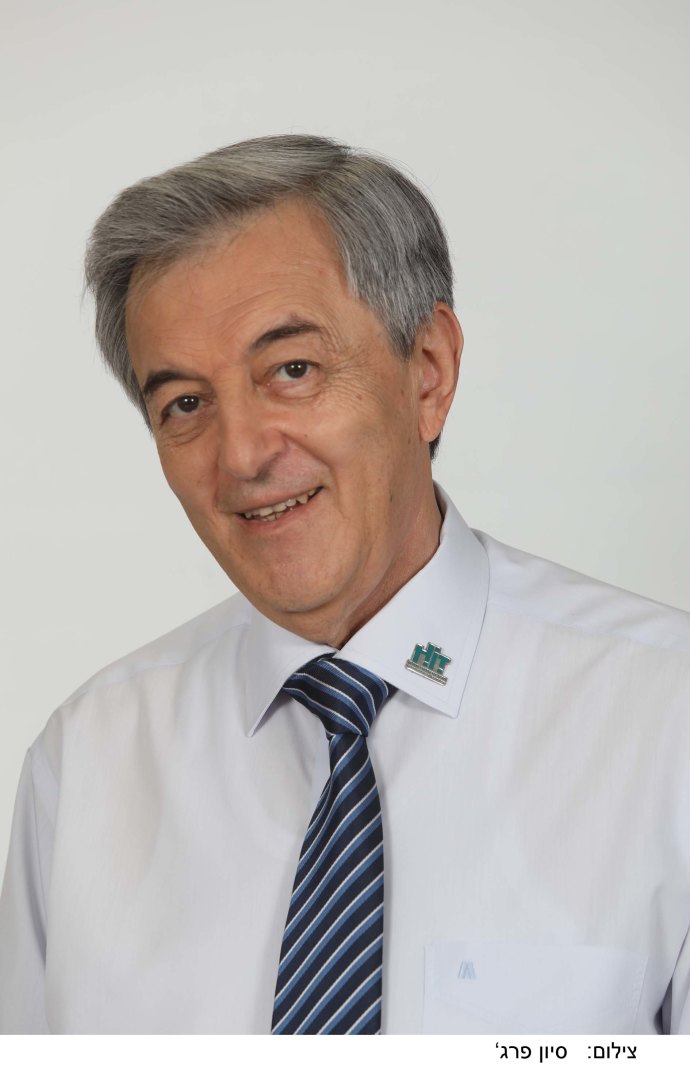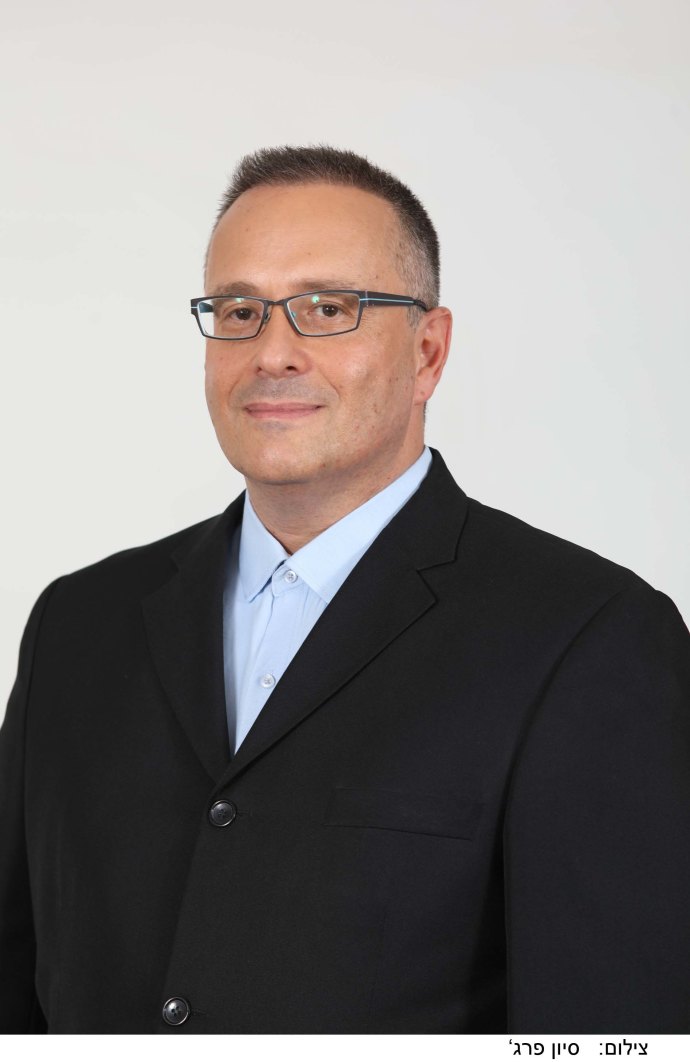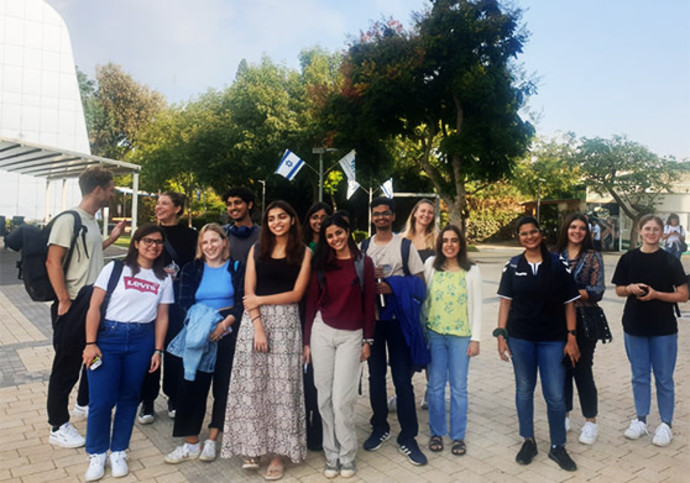‘At the Holon Institute of Technology,” says Prof. Eduard Yakubov, “we believe that in the modern world, borders should not serve as a boundary between countries.” Yakubov, who was born in Uzbekistan and studied at Tashkent University before making aliyah more than 30 years ago, has epitomized this message during his tenure as the Holon Institute of Technology’s president. Over the past decade, HIT has developed many areas of educational cooperation with 130 institutions of higher education in over 35 countries through research, student/faculty exchange programs and specialized programs such as Digital Medical Technologies.
HIT is home to more than 5,400 students, placing it in the first rank of academic institutions in Israel. At the beginning of the current school year, it welcomed 2,000 incoming students and inaugurated a 500-unit student dormitory complex. Yakubov envisions that the new dormitory complex will play a triple role: housing students from Israel’s geographic peripheries, thus making Israel’s hi-tech epicenter accessible; becoming home for students from Israel’s central region, who have difficulty affording the high cost of apartment rentals; and serving as a residential base for international students studying at HIT.
HIT includes eight faculties and independent departments that grant undergraduate and master’s degrees. These include the Faculty of Sciences; the Faculty of Electric and Electronics Engineering; the Faculty of Instructional Technologies; the Faculty of Industrial Engineering and Technology Management; the Faculty of Design; the Department of Data Sciences; the Department of Digital Medical Technologies and the School of Multidisciplinary Studies.

Yakubov points out that one of HIT’s advantages is its close relations with industry. “Since its inception,” he says, “HIT has been working to strengthen the connection between academia and industry. We maintain a close relationship with senior figures in the economy.” Technology is developing rapidly, and he adds that “one of the challenges of higher education is to be prepared for change, to understand the direction of development and to be updated accordingly.”
Ninety percent of HIT graduates are working in senior positions in industry and are very much in demand. “HIT’s prowess as a leading technological institute,” adds Yakubov, “is illustrated by the large number of international conferences it hosts, bringing scientists, academics and senior lecturers from around the world to its campus.”

In addition to the numerous international academic gatherings that it holds, HIT is an enthusiastic advocate for developing and cultivating connections with leading institutions outside Israel. One of its best-known academic relationships is with universities in Uzbekistan and Azerbaijan.
This year, for the first time, a large number of overseas students from France, Italy, Germany, Austria, India, Azerbaijan, Uzbekistan and Russia are studying at HIT. Yakubov sees the arrival of international students as a crucial part of HIT’s mission: “We view our students from abroad as future ambassadors, both for HIT and for the State of Israel. I believe in ‘people’s diplomacy.’ The more contact that exists between Israeli students and those from other countries, the greater the opportunity to convey the message that the Israeli people pursue peace and that we are proud to be known as the Start-Up Nation.”
Yakubov adds that having foreign students at HIT helps both Israeli and international students appreciate the advantages of their respective countries, while enabling them to learn from foreign cultures: “When Israeli students meet overseas students studying here, they learn and understand what is happening in countries outside of Israel. Students from Uzbekistan, for example, bring with them their values of tolerance and calm. When they visit Israel, they will learn more about the workings of the Western democracy we experience here. All of the students will learn from each other, and the connections will continue for many years to come.”
While Prof. Yakubov's recent activities are encouraging academic programs in moderate Muslim nations in Euro-Asia – Kazakhstan, Uzbekistan, Azerbaijan, Turkmenistan, Tajikistan and Kyrgyzstan – which in themselves are a strategic priority for the State of Israel – Dr. Refael Barkan, vice president for innovation, entrepreneurship and
internationalization at HIT, fosters academic exchange programs in the United States and Europe.
Echoing Yakubov, Barkan says that the primary goal of HIT’s exchange programs is to create interactions with international students and give them a feel for globalization on an academic level. He notes that HIT receives many inquiries from outside Israel about its B.Sc. program in Digital Medical Technologies. HIT’s program is the only program in digital health offered in Israel and is one of the first programs of its kind in the world.
Developed in close collaboration with Israel’s leading hospitals and HMOs, the three-year program focuses on artificial intelligence, big data, telemedicine, and robotics, as well as health sciences, biology, chemistry and physics.
“Every week,” says Barkan, “I receive inquiries from doctors around the world about the program. Recently, we received two inquiries from doctors in India who want academic training. We have even received inquiries from Pakistan and Iran.” Barkan adds that this past year, two master’s students from France completed their degrees in the digital medical technologies program at HIT.

Expanding on digital health, Barkan explains, “We want to train people to become fluent in two ‘languages’ – clinical medicine and digital technology.” HIT’s digital medical technologies program, he says, is designed as a pre-med program where, along with traditional studies in medical science, students learn technology with an emphasis on data because, he points out, “As we saw during Corona, medical data is the most important growth engine. All doctors and health personnel must understand medical data and artificial intelligence (AI).”
Apart from pre-med students, the digital medical technologies program is designed to train students to become proficient in the world of digital health data, who will then become medical analysts and assume leading positions in hospitals, HMOs, pharmaceutical companies, medical insurance companies, and start-ups. These HIT graduates will be qualified to develop the technological infrastructure of the medical centers of the future. Barkan reports that HIT will soon be collaborating with the University of Miami in an exchange program with the students in its own digital health program.
In the area of research, HIT is an active partner with universities in Belgium, Austria, Germany, the Czech Republic, Greece, and Cyprus through Erasmus, the EU program for supporting education, training, youth and sport in Europe. Dr. Barkan cites one ongoing project being conducted with a consortium of universities in the Czech Republic, Greece, Uzbekistan and Spain, aiming to lower dropout rates in engineering and computer science by strengthening core mathematics courses, as part of a Capacity-Building Project funded by Erasmus+.
HIT is building connections in digital health with universities in the United States, says Barkan, such as the University of Miami, the University of Arizona and other institutions on the West Coast. He adds that HIT faculty members have received highly competitive research awards from NSF (National Science Foundation) and BSF (US-Israel Binational Science Foundation) and funding for various projects.
In the spring of 2023, HIT, says Barkan, will be expanding its reach to the Far East, when it sends a delegation to Singapore to visit various institutions to forge connections in engineering, science and medicine.
As a prominent hi-tech institution, HIT is very active in development and entrepreneurship. Barkan reports that HIT’s partnerships with European consortiums have led to products in areas such as learning technology and IoRL, the Internet of radio light, which develops more secure and customizable Internet networks. In Israel, HIT has developed devices and systems intended to be used as real-life, patented products and is responsive to the needs of the various health organizations. A number of projects are in clinical trials with HIT’s strategic partners, including the Rabin Medical Center, Sheba Medical Center, and the Clalit Health Organization.
The future HIT Center has been designated as one of Israel’s top 10 centers of entrepreneurship and innovation, and Dr. Barkan says the FUTURE HIT Center took first place in an international competition of centers for innovation for the second consecutive year. “We are making an impact in three areas: academia, industry, and most importantly, a special half-year accelerator program for students.”
The accelerator program promotes student-designed projects and prepares them for the next stages of product development. “What makes our accelerator program unique,” Barkan explains, “is that the students work closely with a multidisciplinary team in technology, business and design, which advances their project.” Once the student has left the accelerator, HIT continues its assistance. HIT has licensed the VMS (Venture Mentoring Services) program from MIT, which will provide mentorship and assistance to help them in the subsequent stages.
Yakubov summarizes the educational experience at HIT this way: “HIT is proud of its DNA, based on academy – industry – society. Our mission is to make higher education accessible to all sectors of Israeli society. We try to provide our students with not only knowledge and learning but also the values of good citizenship. To us, they are more than students – they are our partners.”
This article was written in cooperation with the Holon Institute of Technology.
